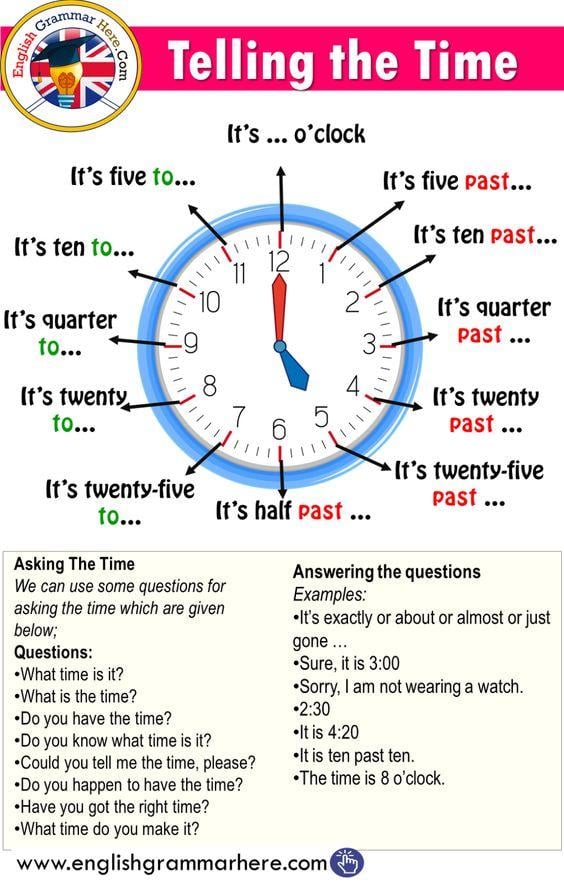Telling the time in English is one of the most important skills for any English learner. There are a lot of expressions and phrases used when it comes to telling the time in English and teachers need to be able to teach it in a way that makes sense to the students. Below are five simple steps for telling the time in English.

Choose which clock to use
There are two ways how you can tell the time in English: the 12-hour clock and the 24-hour clock. For the 24-hour system, you use the numbers from 0 – 23 to indicate the hours, whereas the 12-hour system useses only 1 - 12. To indicate morning or afternoon time, you use ‘am’ after the time in the morning and ‘pm’ after the time in the afternoon. Hereby, it's important to remember that ‘pm’ starts at 12:00 near lunchtime.
Only use o’clock up to 12
To talk about precise hours, we use ‘o’clock’. This means, you can say ‘nine o’clock’ at 09:00 but not at 09:01. Also keep in mind that we only use ‘o’clock’ when telling time using the 12-hour. English speakers would never say ’13 o’clock’.
We only have a ‘half past, never a ‘half to’.
English uses the expression ‘half past’ to talk about any time ending in ‘:30’, unlike many other languages. After this 30-minute mark, we use 'to', looking forward to the nex full hour. For example, 8:30 is ‘half past eight’ and 8:31 is 29 minutes to 9. We also only use ‘half past’ with the 12-hour clock.
Use ‘quarter’ for 15 minutes before or after the hour
Whenever the time shows X:15 and X:45, English speakers like to say ‘quarter past’ and ‘quarter to’. This is a much more natural way of speaking than saying fifteen minutes past’ or ‘fifteen minutes to’. As mentioned above with 'half past', we only use 'quarter past' and 'quarter to' with the 12-hour clock.
Use ‘at’ for specific times and ‘in’ for periods of time
This is a great rule of thumb to teach your students. In English, we use ‘at’ to talk about any specific time, such as "I'll meet you at 10 pm." There are also a lot of special terms for times of the day and night that are also used with 'at'. These include terms like ‘midday’, ‘midnight’, ‘dawn’ and ‘dusk’. When talking baout a period of the day, we use 'in'. For example, “in the morning”, “in the afternoon”, “in the evening”, or “in the night”. There is one exception to this rule in that we say “at night” and not 'in night'.
Are you interested in teaching English as a foreign language? Get your TEFL or TESOL certification with ITTT.
Register now & get certified to teach english abroad!


